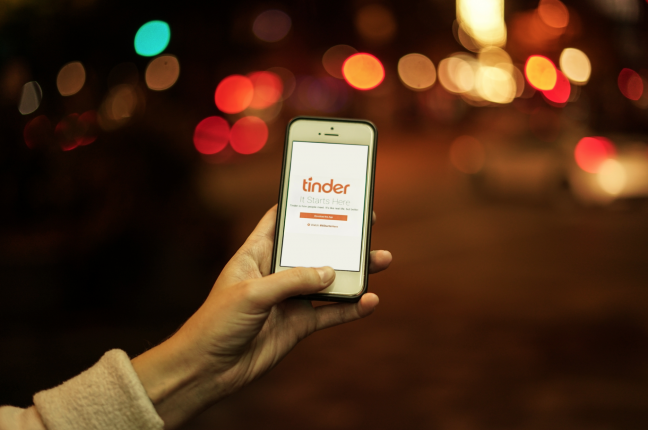“Aight, I’m not playing games anymore. Lemme smash.”
What a cordial greeting, 20-something year old male Tinder match, thank you so much for living up to the incredibly low expectations most 20-something year old females currently have for male companionship.
Dating apps such as Tinder and Bumble, paired with sexually frustrated and bored millennials are swiftly killing the dating scene, replacing it with late night hookups and half-committed relationships that end as quickly as they start.
That in and of itself, while possibly confusing to our parents generation, who went out for movies and dinner like clockwork every Friday night during their dating days, is not the most pressing issue. To each his own in the relationship department.
The real issue stems from how these apps allow men to treat women, both while talking online and if a couple ever meets in person. Although referred to as “dating apps”, the vast majority of users are not using them to date; in fact only four percent of college aged users report using apps to meet potential dates. One in three women are reported to be against hooking up on a first date with someone they met online, while only one in ten men report feeling the same way.
The disconnect between men and women when it comes to hooking up immediately after meeting in person is a large driving force behind how the apps shape men’s perception of women. The apps become a tool for the purpose of finessing (often much less elegant or endearing than the word implies), a hookup instead of having a real conversation.
Women certainly use dating apps for meaningless sex and I am positive they have sent equally as horrifying greetings to men. However, the issue arises when men and society as a whole look down upon them for doing so yet turn a blind eye to the male equivalent.
I’ve seen guys straight up admit to needing rebound sex when they’re asked to get coffee before going back to someone’s apartment to have sex, or lead with the simple demand for nudes. Ironically, the same men who send the late night “what’re you doing” texts are the ones who turn around and shame women for wearing too tight of dresses, who show their bra straps in school or who have had sex with anyone but them.
The depersonalization of women and of sex through dating apps leads to a strange dichotomy: on one hand women are expected by society to be pure and innocent, a proper lady who doesn’t drop her pants for anyone but her boyfriend or her husband, but on the other hand she’s expected by her male peers to come over at 2 a.m. when he’s lonely and wants some company.
Women are expected to say no, but not to the random Tinder boy who is “just looking to have some fun,” because that makes them boring or magically turns them into a slut who must be sleeping with hundreds of other people, because that’s the only justification behind why she would say no.
Dating apps continue to perpetuate this idea of women by not only focusing solely on enticing pictures and implicitly or explicitly sexualized bios to get the coveted right swipe from someone you find attractive, but by allowing both parties to remain hidden behind phone screens while they throw insults if the girl won’t sleep with them, or if they decide a good start of a conversation is to compliment a girl’s ass instead of asking how her day’s going.
This is not to say all dating apps are horrible and all guys are using them for is to get in girls’ pants. Nor is it to demonize all men for having inflated egos or slut shaming women for sleeping with other people (or no one) instead of sleeping with them.
Instead, it is to say that dating apps are allowing for the depersonalization of women, sex and relationships, replacing them with an app that gives a platform to the men who think it is appropriate to do any of the aforementioned things.
Just a little hint for those men: it’s most certainly not okay, and you most certainly will not be allowed to “smash.”
Aly Niehans (aniehans@badgerherald.com) is a sophomore majoring in international studies and intending to major in journalism.


